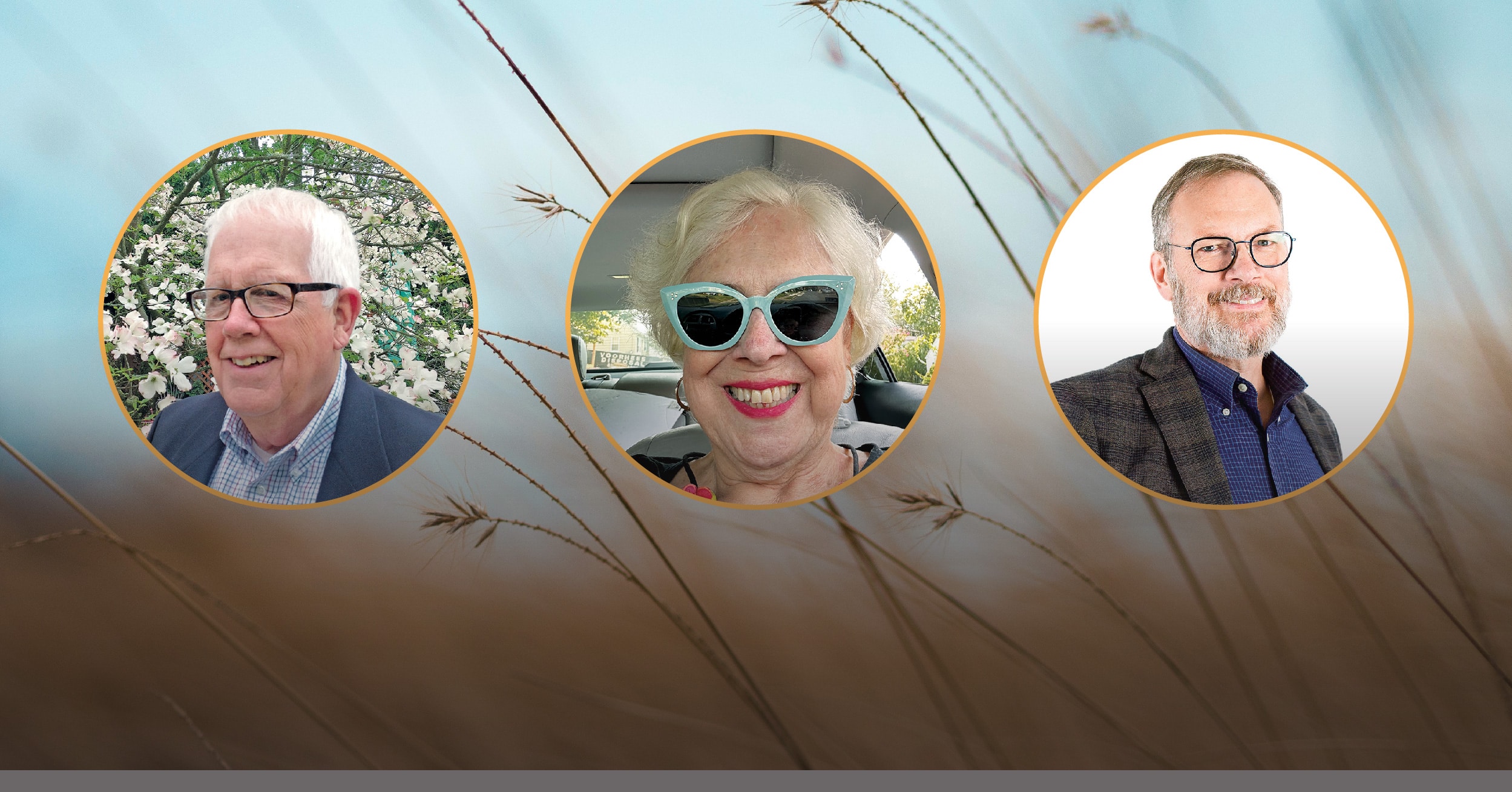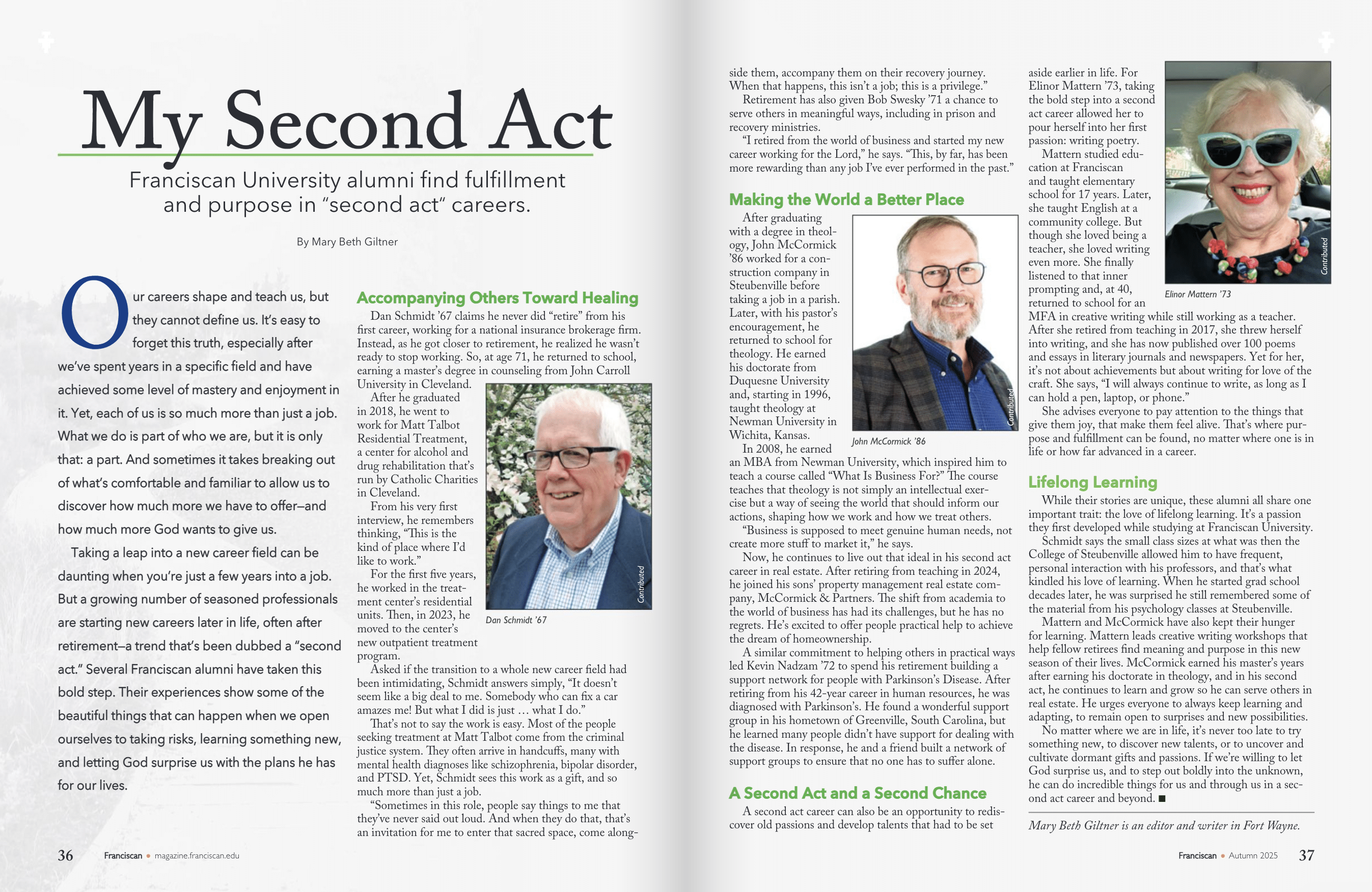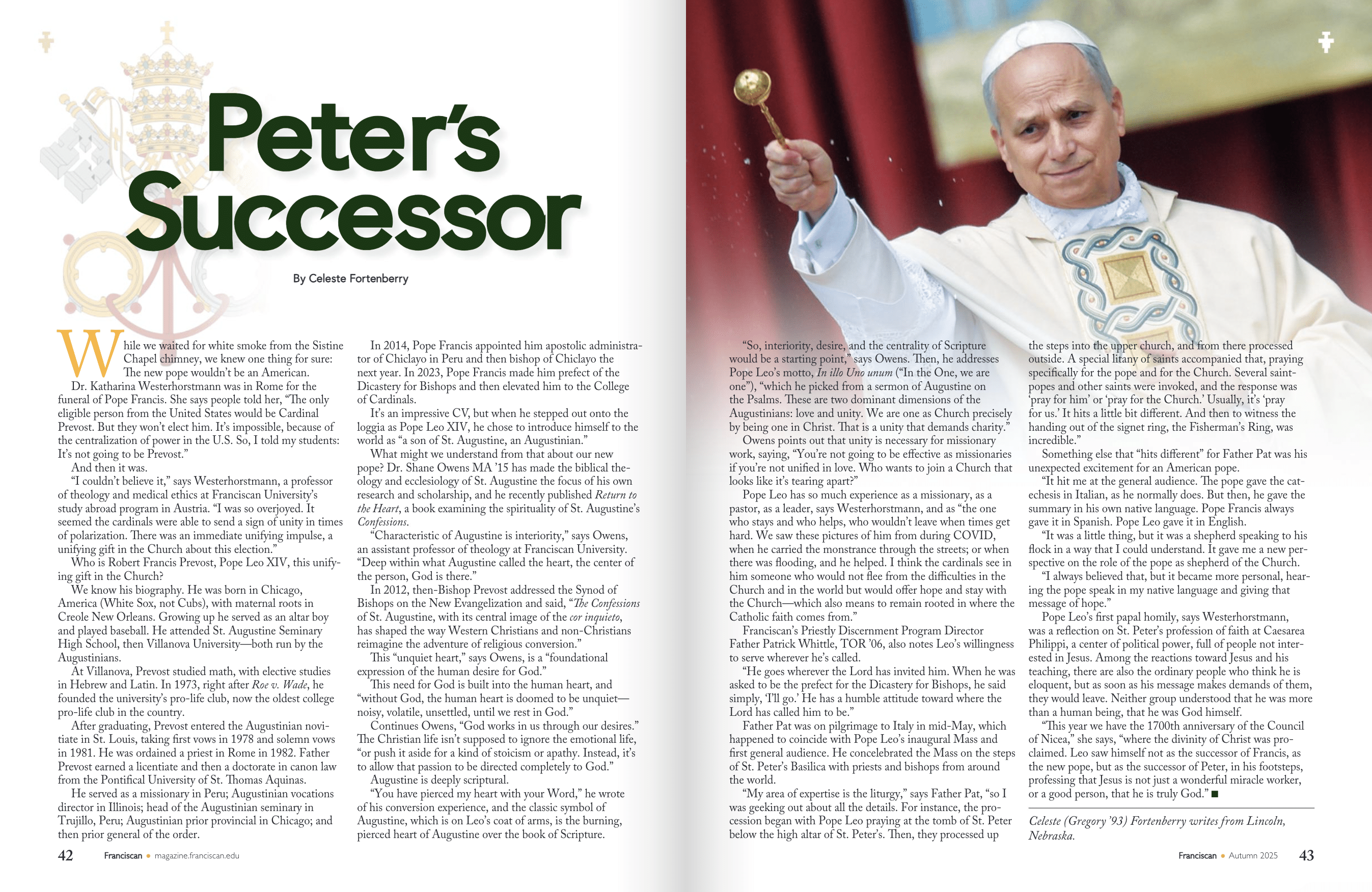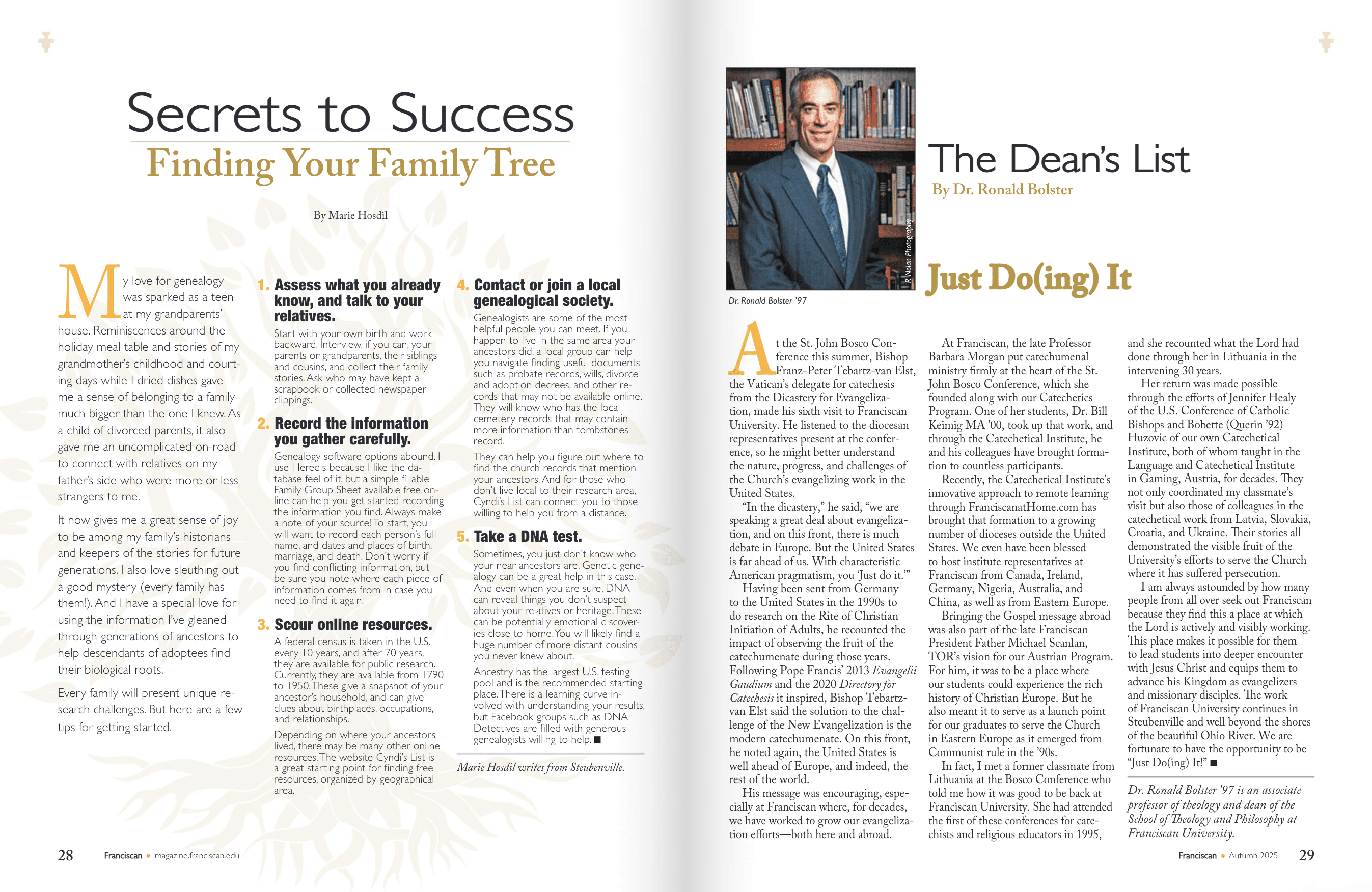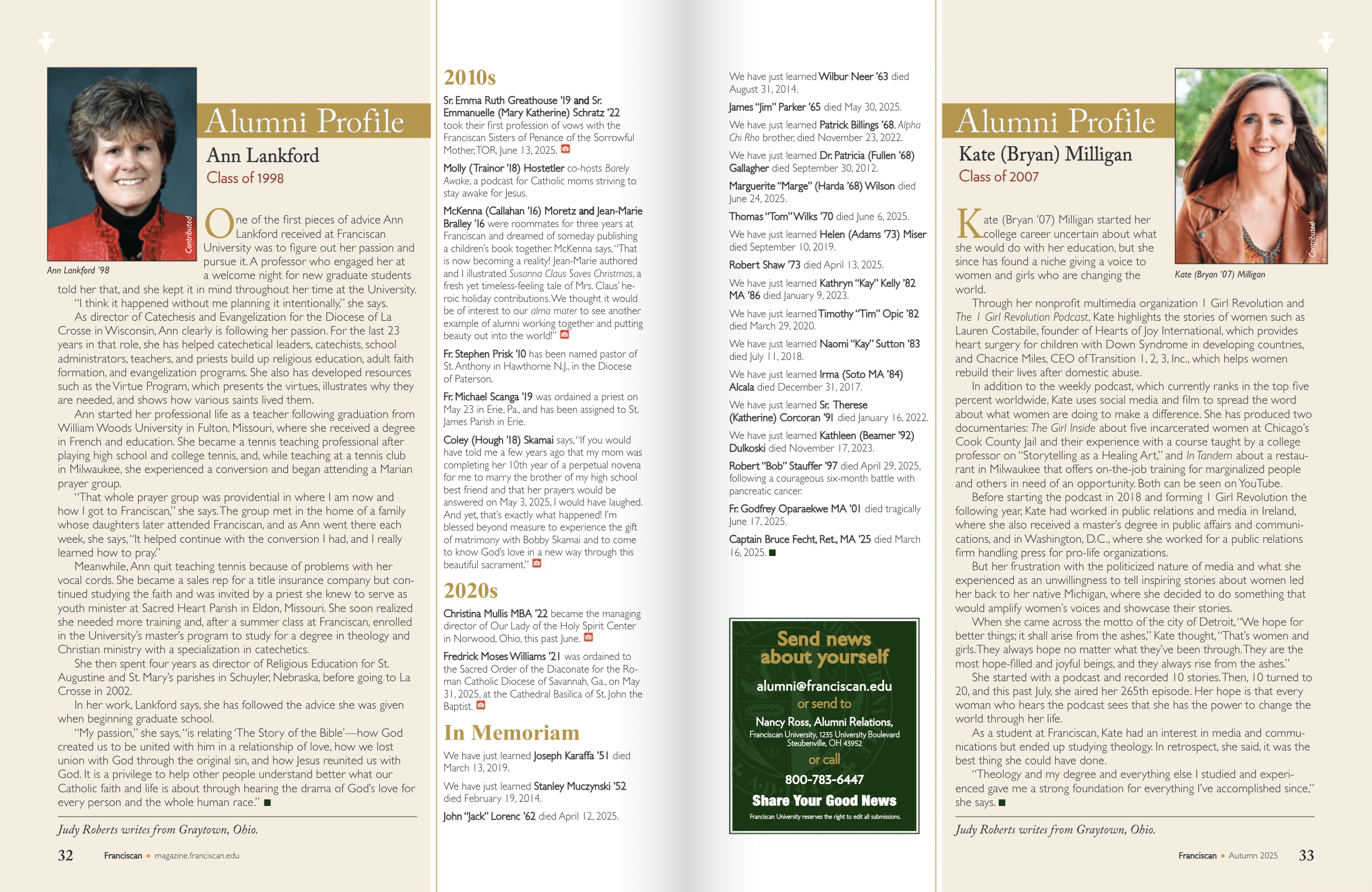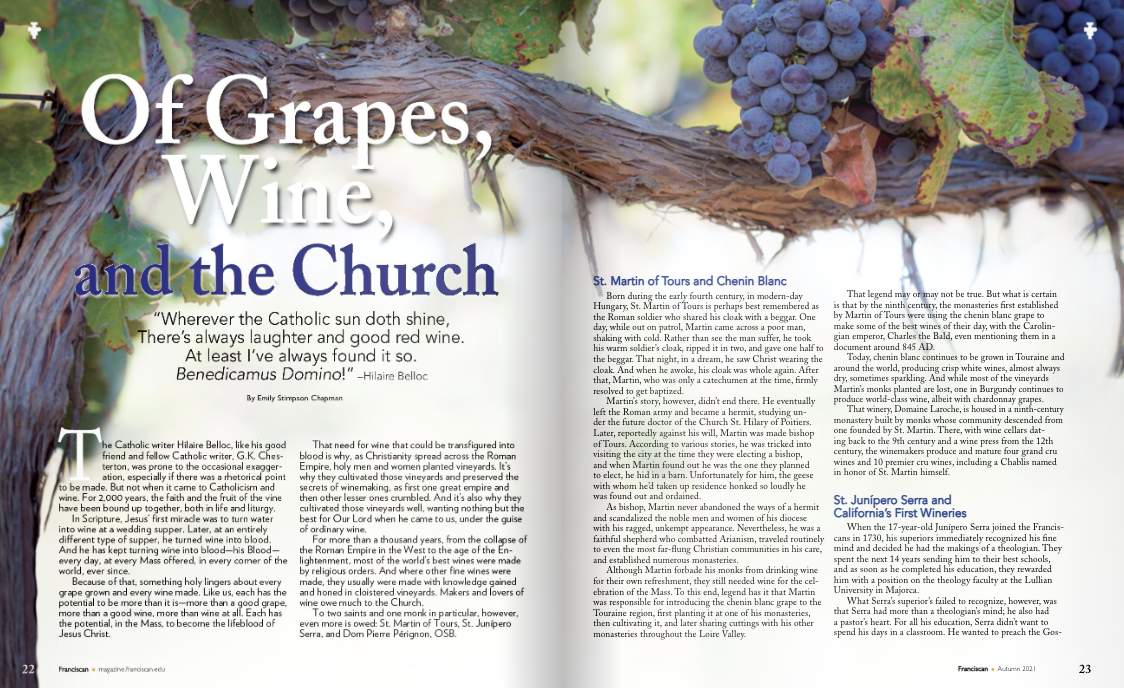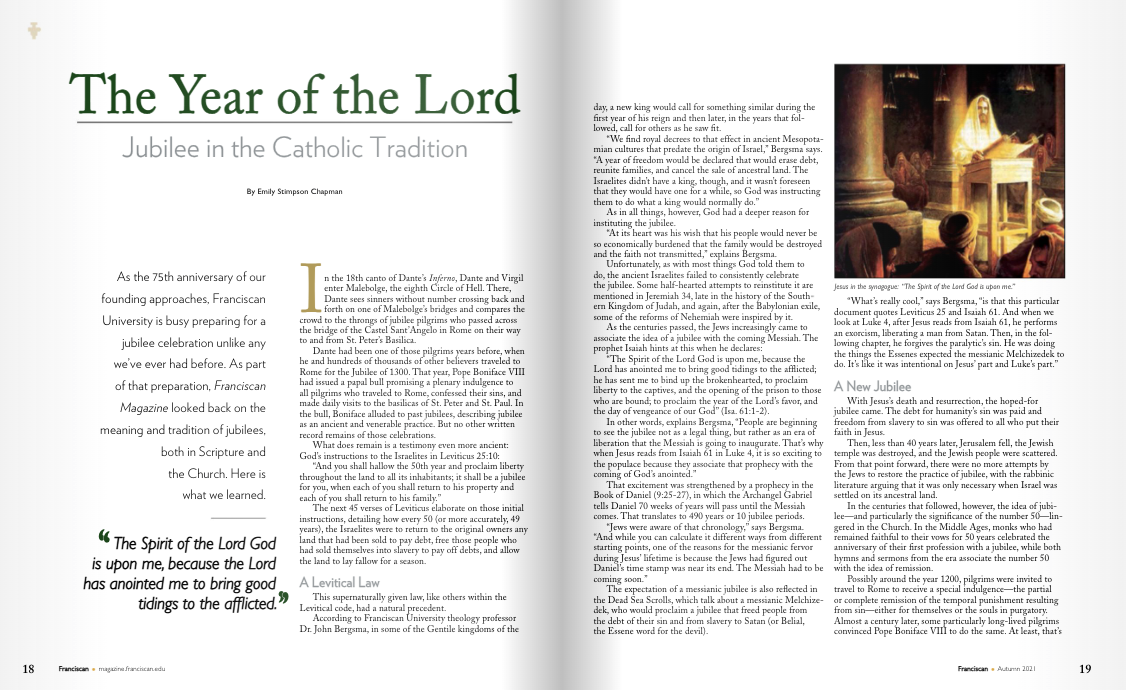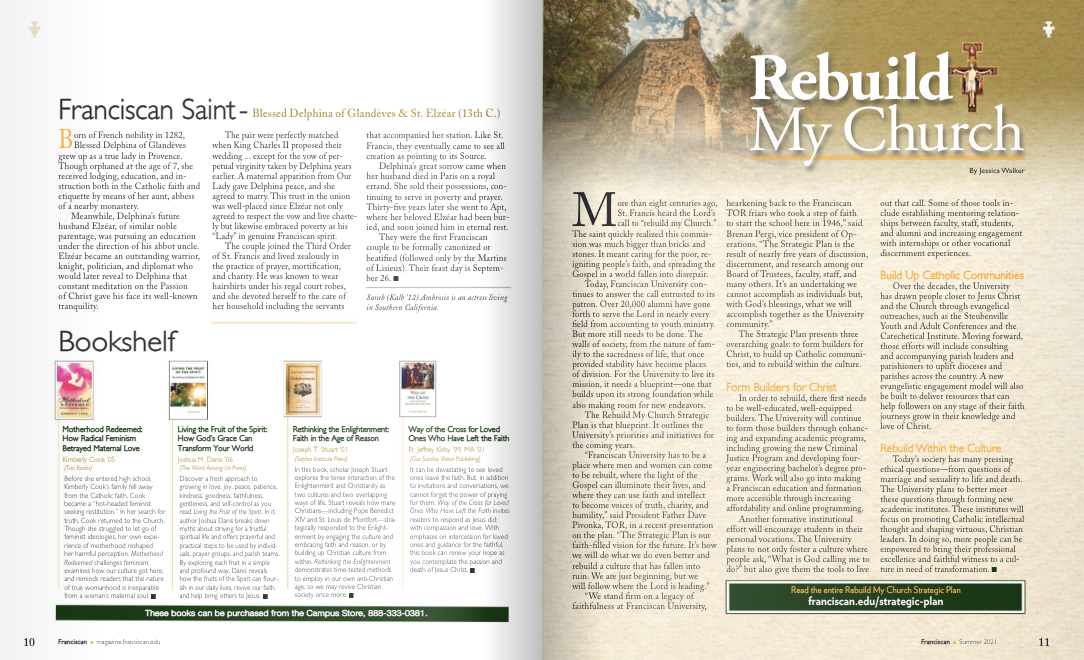Our careers shape and teach us, but they cannot define us. It’s easy to forget this truth, especially after we’ve spent years in a specific field and have achieved some level of mastery and enjoyment in it. Yet, each of us is so much more than just a job. What we do is part of who we are, but it is only that: a part. And sometimes it takes breaking out of what’s comfortable and familiar to allow us to discover how much more we have to offer—and how much more God wants to give us.
Taking a leap into a new career field can be daunting when you’re just a few years into a job. But a growing number of seasoned professionals are starting new careers later in life, often after retirement—a trend that’s been dubbed a “second act.” Several Franciscan alumni have taken this bold step. Their experiences show some of the beautiful things that can happen when we open ourselves to taking risks, learning something new, and letting God surprise us with the plans he has for our lives.
Accompanying Others Toward Healing
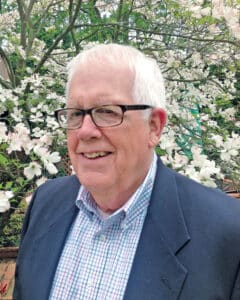 Dan Schmidt ’67 claims he never did “retire” from his first career, working for a national insurance brokerage firm. Instead, as he got closer to retirement, he realized he wasn’t ready to stop working. So, at age 71, he returned to school, earning a master’s degree in counseling from John Carroll University in Cleveland.
Dan Schmidt ’67 claims he never did “retire” from his first career, working for a national insurance brokerage firm. Instead, as he got closer to retirement, he realized he wasn’t ready to stop working. So, at age 71, he returned to school, earning a master’s degree in counseling from John Carroll University in Cleveland.
After he graduated in 2018, he went to work for Matt Talbot Residential Treatment, a center for alcohol and drug rehabilitation that’s run by Catholic Charities in Cleveland.
From his very first interview, he remembers thinking, “This is the kind of place where I’d like to work.”
For the first five years, he worked in the treatment center’s residential units. Then, in 2023, he moved to the center’s new outpatient treatment program.
Asked if the transition to a whole new career field had been intimidating, Schmidt answers simply, “It doesn’t seem like a big deal to me. Somebody who can fix a car amazes me! But what I did is just … what I do.”
That’s not to say the work is easy. Most of the people seeking treatment at Matt Talbot come from the criminal justice system. They often arrive in handcuffs, many with mental health diagnoses like schizophrenia, bipolar disorder, and PTSD. Yet, Schmidt sees this work as a gift, and so much more than just a job.
“Sometimes in this role, people say things to me that they’ve never said out loud. And when they do that, that’s an invitation for me to enter that sacred space, come along side them, accompany them on their recovery journey. When that happens, this isn’t a job; this is a privilege.”
Retirement has also given Bob Swesky ’71 a chance to serve others in meaningful ways, including in prison and recovery ministries.
“I retired from the world of business and started my new career working for the Lord,” he says. “This, by far, has been more rewarding than any job I’ve ever performed in the past.”
Making the World a Better Place
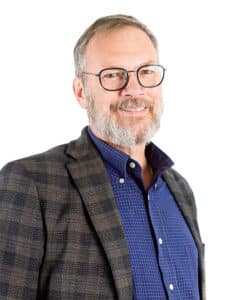 After graduating with a degree in theology, John McCormick ’86 worked for a construction company in Steubenville before taking a job in a parish. Later, with his pastor’s encouragement, he returned to school for theology. He earned his doctorate from Duquesne University and, starting in 1996, taught theology at Newman University in Wichita, Kansas.
After graduating with a degree in theology, John McCormick ’86 worked for a construction company in Steubenville before taking a job in a parish. Later, with his pastor’s encouragement, he returned to school for theology. He earned his doctorate from Duquesne University and, starting in 1996, taught theology at Newman University in Wichita, Kansas.
In 2008, he earned an MBA from Newman University, which inspired him to teach a course called “What Is Business For?” The course teaches that theology is not simply an intellectual exercise but a way of seeing the world that should inform our actions, shaping how we work and how we treat others.
“Business is supposed to meet genuine human needs, not create more stuff to market it,” he says.
Now, he continues to live out that ideal in his second act career in real estate. After retiring from teaching in 2024, he joined his sons’ property management real estate company, McCormick & Partners. The shift from academia to the world of business has had its challenges, but he has no regrets. He’s excited to offer people practical help to achieve the dream of homeownership.
A similar commitment to helping others in practical ways led Kevin Nadzam ’72 to spend his retirement building a support network for people with Parkinson’s Disease. After retiring from his 42-year career in human resources, he was diagnosed with Parkinson’s. He found a wonderful support group in his hometown of Greenville, South Carolina, but he learned many people didn’t have support for dealing with the disease. In response, he and a friend built a network of support groups to ensure that no one has to suffer alone.
A Second Act and a Second Chance
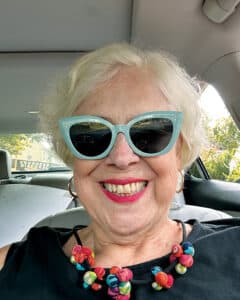 A second act career can also be an opportunity to rediscover old passions and develop talents that had to be set aside earlier in life. For Elinor Mattern ’73, taking the bold step into a second act career allowed her to pour herself into her first passion: writing poetry.
A second act career can also be an opportunity to rediscover old passions and develop talents that had to be set aside earlier in life. For Elinor Mattern ’73, taking the bold step into a second act career allowed her to pour herself into her first passion: writing poetry.
Mattern studied education at Franciscan and taught elementary school for 17 years. Later, she taught English at a community college. But though she loved being a teacher, she loved writing even more. She finally listened to that inner prompting and, at 40, returned to school for an MFA in creative writing while still working as a teacher. After she retired from teaching in 2017, she threw herself into writing, and she has now published over 100 poems and essays in literary journals and newspapers. Yet for her, it’s not about achievements but about writing for love of the craft. She says, “I will always continue to write, as long as I can hold a pen, laptop, or phone.”
She advises everyone to pay attention to the things that give them joy, that make them feel alive. That’s where purpose and fulfillment can be found, no matter where one is in life or how far advanced in a career.
Lifelong Learning
While their stories are unique, these alumni all share one important trait: the love of lifelong learning. It’s a passion they first developed while studying at Franciscan University.
Schmidt says the small class sizes at what was then the College of Steubenville allowed him to have frequent, personal interaction with his professors, and that’s what kindled his love of learning. When he started grad school decades later, he was surprised he still remembered some of the material from his psychology classes at Steubenville.
Mattern and McCormick have also kept their hunger for learning. Mattern leads creative writing workshops that help fellow retirees find meaning and purpose in this new season of their lives. McCormick earned his master’s years after earning his doctorate in theology, and in his second act, he continues to learn and grow so he can serve others in real estate. He urges everyone to always keep learning and adapting, to remain open to surprises and new possibilities.
No matter where we are in life, it’s never too late to try something new, to discover new talents, or to uncover and cultivate dormant gifts and passions. If we’re willing to let God surprise us, and to step out boldly into the unknown, he can do incredible things for us and through us in a second act career and beyond.



